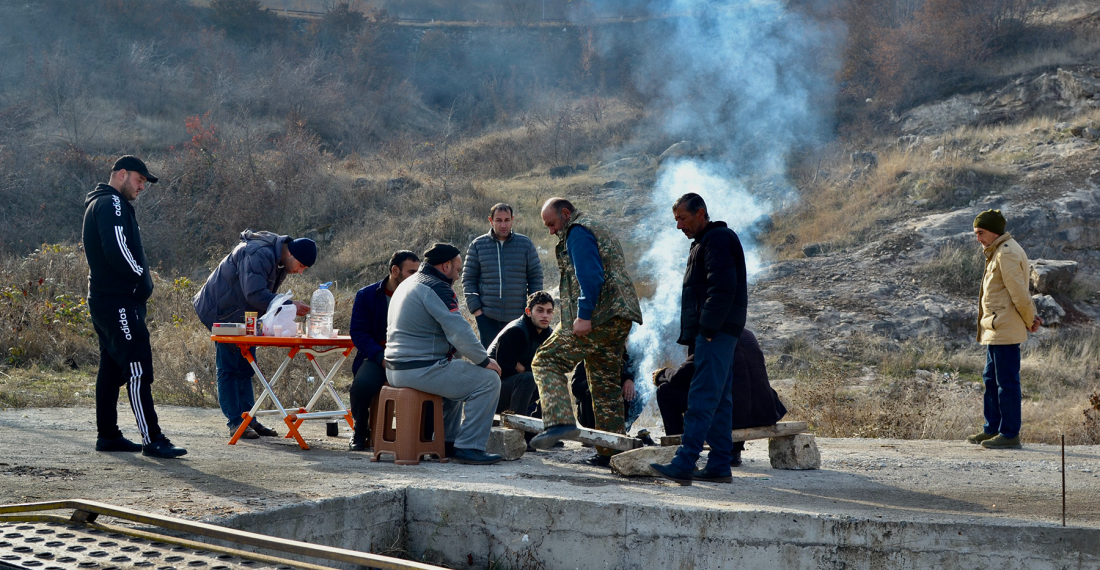On Friday (28 April), Azerbaijani media reported that the self-proclaimed "eco-protest" along the Lachin Corridor had been brought to an end after 138 days.
The demonstration led by Azerbaijani "eco-activists" began on 12 December last year when Azerbaijan accused the de facto Armenian authorities of Nagorno-Karabakh of using the Lachin Corridor to exploit the region's natural resources, and transferring them to Armenia.
The protest effectively became redundant after Azerbaijan installed a checkpoint at the Hakari Bridge on its border with Armenia on 23 April, at the entrance to the Lachin Corridor, about which you can read more here. The decision to end the protest followed a meeting with Aydin Karimov, the Azerbaijani president's special representative in Shusha, who reportedly asked them to disperse since "a new situation has emerged" following the checkpoint's installation.
Armenians argued that the measure constituted a blockade of the Armenian-populated region, with continuous reports emerging of Karabakh Armenians ending up stuck in Armenia and being unable to return home to Karabakh.
On 22 February the International Court of Justice in The Hague ordered Azerbaijan "take all measures at its disposal to ensure unimpeded movement of persons, vehicles and cargo along the Lachin Corridor in both directions". You can read more about this here.
Official Baku, while insisting that the protest had nothing to do with them, has maintained that the demonstration did not constitute a blockade. They said that the Lachin Corridor remained open for humanitarian purposes, giving frequent updates about vehicles supposedly carrying humanitarian goods passing the protest.
There have however been questions raised about the impact of the Lachin Corridor protest on the local population. Aside from difficulties faced by Karabakh Armenians in travelling to and from the region, over the past four and a half months continuous reports emerged of food and fuel shortages, a lack of medical supplies, and power cuts.
Report: "Gendered Impacts of the Lachin Corridor Blockade"
To that end, the Swedish women's rights organisation Kvinna till Kvinna (Woman to Woman) has compiled a preliminary assessment of the "Gendered Impacts of the Lachin Corridor Blockade", which can be accessed here.
The report writes that "access to adequate nutrition, including for children, the elderly, and pregnant individuals, is scarce", and that de facto authorities have introduced a rationing system for certain staples, resulting in women often standing in long queues and being unable to undertake other tasks.
On healthcare, the report notes shortages of specialised nutrition, post-natal care and essential hygiene products, with adequate healthcare only provided by the International Committee of the Red Cross.
Education and employment have also been compromised by a lack of heating over the winter months, resulting in especially schools being forced to close. Fuel and electricity shortages have forced the local population to seek alternative sources of energy, writes the report, with transportation also being negatively affected.
Finally, electricity supply problems have also hampered internet connectivity, which "precludes access to quality information, connections to other contexts, and further complicates online learning options, aggravating the burden on women with school-age children", according to the report.



